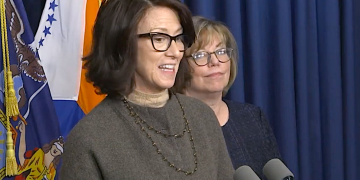Businesses unable to open due to prolonged power outages, road and mass-transit closings and disrupted supply lines in the wake of Hurricane Sandy are expected to file substantial claims for business interruption losses that could be a major headache for insurers and a legal battleground, according to insurance industry experts.
Some analysts have estimated business interruption losses will amount to about 30 percent of total insurance losses. Officials at Allianz Global Corporate & Specialty Americas, an international corporate insurer in New York City, said claims for business interruption and contingent business interruption ”“ which insures companies against failures of key suppliers caused by physical damage ”“ typically account for 50 to 70 percent of overall catastrophic losses in the corporate insurance segment.
State and federal officials have not yet tallied or ventured to estimate overall storm damage in the federal disaster area that includes the five New York City boroughs and Westchester, Rockland, Nassau and Suffolk counties. Gov. Andrew Cuomo in the immediate aftermath of the hurricane said losses would amount to several billion dollars in the state.
EQECAT Inc., a catastrophe risk modeling firm, estimated the storm damage on the East Coast at between $10 billion to $20 billion in insured losses and total economic damage at $30 billion to $50 billion.
As of Election Day, the Federal Emergency Management Agency (FEMA) had approved more than $156 million in disaster recovery aid to individuals and families in New York. More than 123,000 New Yorkers have registered with FEMA for disaster assistance.
The federal lending arm to disaster-stricken businesses, the U.S. Small Business Administration (SBA), had issued 22,606 disaster loan applications to businesses in New York state as of Nov. 9. SBA officials said they will not have a county-by-county breakdown of loan applicants until disaster loan approvals begin.
SBA officials said businesses and nonprofit organizations of any size may borrow up to $2 million to repair or replace real estate, machinery and equipment, inventory and other business assets damaged or destroyed in the disaster.
The SBA may increase a loan up to 20 percent of the total amount of damage to real estate or leasehold improvements in order for business owners to make improvements that lessen the risk of property damage in future disastrous storms.
The SBA also offers economic injury disaster loans to small businesses and most private nonprofit groups to help with working capital needs related to the disaster. The economic injury loans are available even if a business did not suffer any physical property damage.
Interest rates are as low as 3 percent for nonprofits and 4 percent for businesses with terms up to 30 years. The SBA sets loan amounts and terms based on each applicant”™s financial condition.
FEMA has not opened a mobile disaster recovery center in Westchester County; the nearest FEMA center is in Greenwich, Conn. Business owners are encouraged to apply for SBA assistance online using the agency”™s electronic loan application. To apply, visit disasterloan.sba.gov/ela.
The SBA filing deadline for loan applications for physical property damage is Dec. 31. The deadline for economic injury applications is July 31, 2013.
Cuomo announced that the State Liquor Authority (SLA) will extend renewal periods for holders of liquor licenses in Westchester and the entire metropolitan disaster areas to allow businesses to meet filing and payment deadlines. Current licensees due for renewal in October and November will receive an automatic 60-day grace period after the expiration date, during which they may continue to operate. The governor also announced an extension for the time frames in which retailers can pay distributors for deliveries made just prior to the storm.
The state Department of Environmental Conservation (DEC) will waive fees for businesses and extend application deadlines for state permits for 30 days beginning today. The waivers and extensions will apply to businesses in Westchester, Rockland and Orange counties, Long Island and New York City.
Cuomo said the DEC relief measures will help businesses meet deadlines for submitting permit applications for minor modifications and renewals, obligations in consent orders and payment of regulatory fees.
















